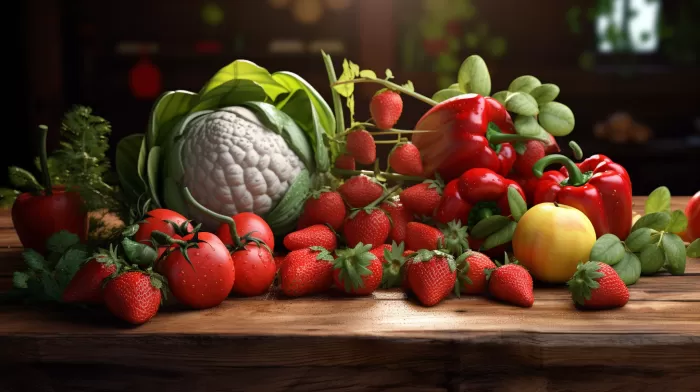Most food available in supermarkets is grown with the help of pesticides and herbicides, which are designed to kill insects and unwanted plants in agricultural fields. However, traces of those chemicals can often be found on the produce you consume. This not only compromises the nutrient levels, but can also pose potential dangers to your overall health.
Pesticide Dangers
Pesticide residues on fruits and vegetables may have more serious health impacts than you think. A study at Harvard discovered that men who consumed fruits and vegetables containing higher amounts of pesticide residues, such as strawberries, peppers, and spinach, experienced reduced sperm count and fewer normal sperm in comparison to those who ate food with lower pesticide residue levels.
This groundbreaking study highlights a direct link between pesticide residue consumption and an adverse health outcome. Researcher Jorge Chavarro from the Harvard T.H. Chan School of Public Health explains that numerous studies have shown that the pesticides you consume from non-organic produce can be detected in your urine, meaning these chemicals circulate within your body.
Furthermore, there is a significant connection between exposure to pesticides through work or home spraying and reduced semen quality. Men who consumed conventionally grown produce with high contamination levels, such as strawberries, spinach, peppers, apples, and pears, were shown to have the most sperm count issues.
Choose Organic
With these findings in mind, it is crucial to choose organic produce, or at least avoid items known to have high pesticide residue levels. Consuming more fruits and vegetables with low pesticide levels is evidently beneficial for overall health. Organic fruits and vegetables, although more expensive, can be considered a valuable investment in your well-being.
Each year, the Environmental Working Group publishes lists showcasing the cleanest and dirtiest produce in terms of pesticide and herbicide presence. While not exclusively a GMO-free or organic list, it can help you make better choices when shopping at a grocery store.
Some fruits and vegetables listed as the dirtiest or most heavily contaminated with pesticides include:
- Strawberries
- Spinach
- Apples
- Cherries
- Peaches
- Pears
- Peppers
- Potatoes
- Grapes
- Tomatoes
Considering the high levels of pesticides found in these items, it is highly recommended that you opt for organic versions if possible.
Meanwhile, produce such as kiwifruit, avocadoes, and pineapples, which are generally listed as having lower levels of pesticides, can be more safely purchased at grocery stores.
Washing & Peeling Produce
While purchasing organic fruits and vegetables is an ideal solution, it is not always possible for everyone. In such cases, thoroughly washing and peeling the produce can help remove at least some of the pesticides present. There are some essential tips to ensure the removal of as many pesticides as possible:
- Wash your hands before and after handling produce
- Discard the outer layers of leafy vegetables
- Rub fruits and vegetables under cold running water
- Use a clean vegetable brush to scrub firm produce items
- Try using a pesticide wash, which can be found in stores
- Dry the produce using a clean cloth or paper towel
Remember, washing your fruits and vegetables is not only necessary for removing pesticides but also for preventing the spread of germs and bacteria.
Grow Your Own
Another way to guarantee low levels of pesticides in your produce is growing your own. Planting a small garden or even using some pots in your window can provide you with contaminant-free fruits and vegetables, depending on the quality of the soil.
Growing your own produce has added benefits too. Gardening can be a therapeutic and stress-relieving activity, and you are more likely to eat the food you have cultivated and minimize waste.
Conclusion
Pesticide residues on produce pose significant dangers to your overall health. Choosing organic produce or items with low levels of pesticides is crucial in reducing negative health impacts. When shopping for your produce, using the Environmental Working Group’s lists as a reference is a helpful first step. Remember to always wash and peel your fruits and vegetables, and consider growing your own if you have the space and opportunity. Investing in your health is worth the time and effort, and making these simple changes will benefit you in the long run.



